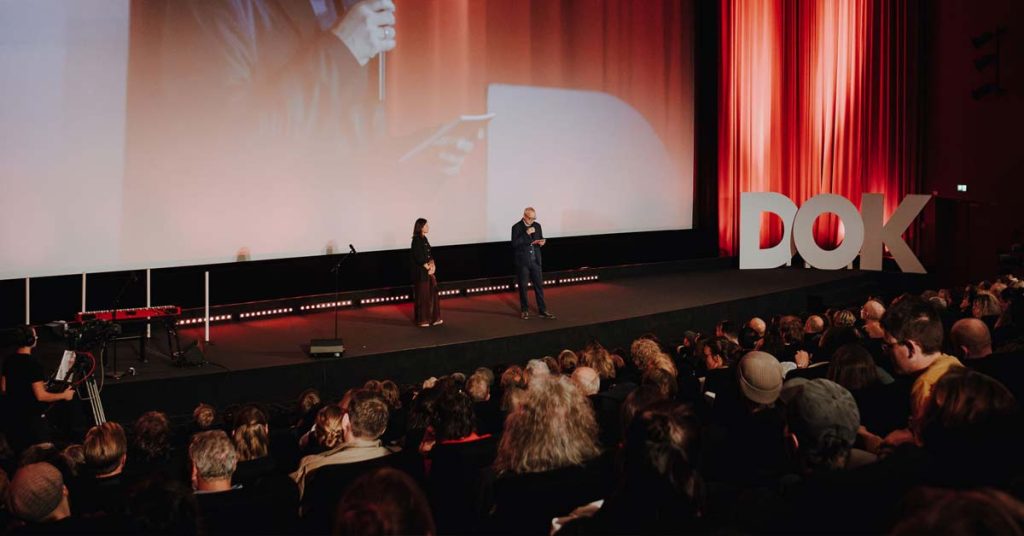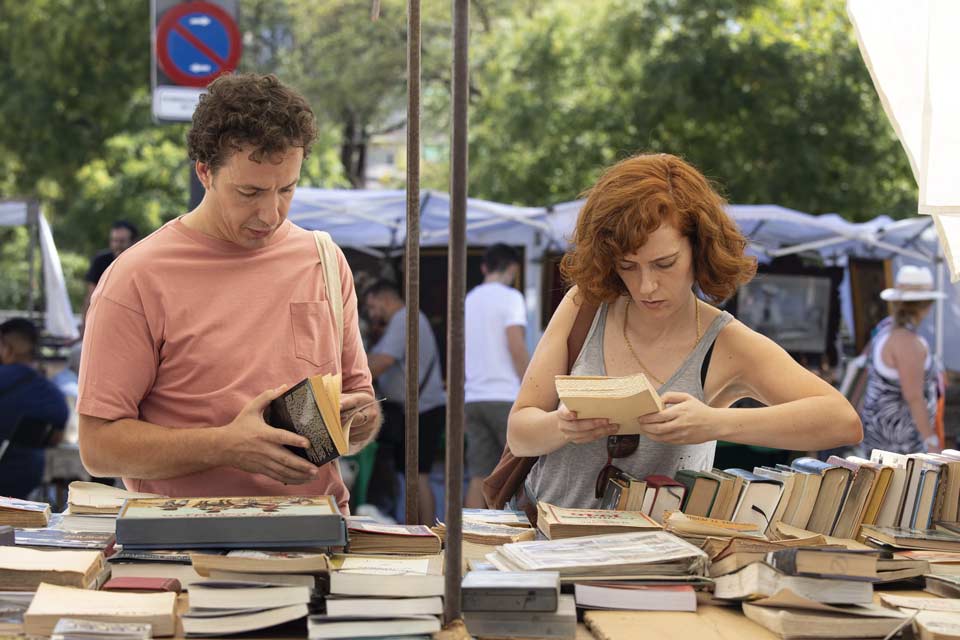
The 68th edition of the International Leipzig Festival for Documentary and Animated Film —better known as DOK Leipzig— closed its doors reaffirming that, even in uncertain times, documentary cinema remains a vital tool for dialogue and collective reflection. With 53,000 attendees, the festival came close to last year’s record of 55,000 visitors, confirming its status as one of the world’s most significant events of its kind. In a cultural landscape marked by tight budgets and an overload of digital content, audiences once again filled theaters in search of the shared experience that home viewing cannot provide.
Departing director Christoph Terhechte, who concludes his six-year tenure for personal reasons, highlighted that spirit of encounter: “There’s a thirst for face-to-face debates, for confronting ideas with respect. That culture of conversation has been one of this year’s great achievements,” he said in his farewell. Standing beside him was his successor, Polish cultural manager Ola Staszel, who will officially take over in January 2026. Having previously co-directed the Neiße Film Festival on the German-Polish-Czech border, Staszel represents a new phase defined by transnational cooperation and a feminist perspective.
The festival screened 252 films from 55 countries —a number that speaks to its curatorial ambition and its commitment to aesthetic and thematic diversity. Beyond screenings, DOK Leipzig offered exhibitions, masterclasses, and an industry program that gathered over 900 professionals. Across just two packed days, filmmakers, producers, distributors, and European funds met in sessions that reinforced Leipzig’s status as a key hub for documentary filmmaking in Europe. Many future festival titles and collaborations were born there, further confirming DOK Leipzig’s reputation as an incubator for new voices.
Among the major awards, the Golden Dove for Best International Documentary went to Peacekeeper, by Croatian director Ivan Ramljak. The film reconstructs the real-life story of Josip Reihl-Kir, a police chief assassinated in 1991 while trying to prevent war between Croatia and Serbia. Through a tense and moving narrative, Ramljak transforms a chronicle of violence into a powerful plea against intolerance and nationalism. In a similar spirit, The Thing to Be Done by Slovenian director Srdan Kovacevic portrayed a group of activists fighting for labor rights, earning one of the festival’s partnership awards.
The award for Best Animated Film went to Canadian brothers Seth and Peter Scriver for Endless Cookie, a piece that blends absurd humor, family memory, and a critique of colonialism toward Canada’s First Nations. Meanwhile, Swiss filmmaker Gregor Brändli won the Silver Dove with Elephants & Squirrels, an ingenious reflection on the colonial plunder of Sri Lankan artifacts preserved in European museums. These works, so different in tone and form, reveal the festival’s breadth and its idea of political engagement as an act of imagination.
The wars in Gaza and Ukraine also had a strong presence on screen. Active Vocabulary, by Russian-German director Yulia Lokshina, won the German Documentary Award with a formally daring concept: a Russian teacher in Berlin invites her students to reenact the experience of being censored and exiled for opposing the war. The festival also continued its collaboration with ARTE’s Generation Ukraine project, which has supported Ukrainian filmmakers since 2022. Among the most talked-about titles were A Simple Soldier, by Artem Ryzhykov —winner of the Leipziger Ring Prize— and Queens of Joy, by Olga Gibelinda, following three Kyiv drag queens who redefine heroism amid conflict.
Women’s cinema also had a strong presence. Cutting Through Rocks, by Iranian duo Sara Khaki and Mohammadreza Eyni, won the Audience Award for its portrait of women defying patriarchal structures, while The Woman Who Poked the Leopard, by Ugandan director Patience Nitumwesiga, received two minor awards for its intimate, combative take on female resistance in East Africa.
Outside the main theaters, the festival’s freer spirit once again emerged during the traditional Animation Night at Schaubühne Lindenfels, which this year paid tribute to the analog era of the “video synthesizer.” Electronic music, experimental art, and nostalgic technology blended in an evening that captured DOK Leipzig’s DNA: cinema as exploration, memory, and play.
With this edition, DOK Leipzig reaffirmed that documentary cinema —far from being a marginal genre— remains one of the most lucid and necessary ways to look at the world. Between farewells, new beginnings, and thousands of shared conversations, the festival once again proved that cinema can still be a space of resistance, empathy, and community.

Suscríbete ahora y obtén acceso ilimitado a Caligari / Subscribe now and get unlimited access to Caligari